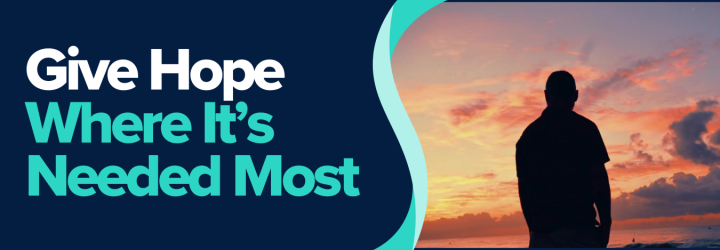
Shattering the Stigma of Substance Use Disorders Is Now More Important Than Ever
As the coronavirus pandemic wears on, many Americans are experiencing the most extreme isolation of their lives.
Family gatherings are postponed, casual meetups with friends canceled, and even the “happiest place on earth” has been closed. Luckily, some of us can make do, using technology and other resources to close the gap. However, for the tens of millions of adults coping with addiction in America, physical distancing can be especially challenging. Not only has access to treatment and recovery supports become more challenging due to COVID-19, but this period of physical distancing may also be intensifying the existing isolation they already feel, due to the unjust stigma associated with this illness.
Distance is the new normal. That’s dangerous for people with addiction.
Individuals who misuse substances are at greater risk of having multiple, physical chronic diseases, and 64% of adults with an opioid use disorder (OUD) have a co-occurring mental illness. We know OUD is correlated with greater rates of infectious disease, homelessness, and unemployment—all of which will certainly be exacerbated by the COVID-19 crisis. Additionally, experts are beginning to demonstrate the increased danger facing those with substance use disorders (SUD) who contract COVID-19. Dr. Nora Volkow, Director of the National Institute on Drug Abuse, outlines how compromised lung function from COVID-19 will put those who use opioids at greater risk for fatal overdose, showing how those with chronic respiratory diseases have increased risk of overdose when using opioids therapeutically.
Isolation and physical distancing pose a threat to people with opioid use disorders. For those actively misusing substances, there may be an increased risk of deadly overdose. (Naloxone is a life-saving overdose reversal drug—but you need someone else in the room to administer it.) And for those in recovery, the resources and network that group meetings provide are a crucial lifeline. However, those are now unavailable or changing, replacing a key social outlet for those who are often outcast in their own communities, workplaces, and families.
Unfortunately, people with SUD are often all too familiar with distance—and not just the physical kind.
In a recent survey, fewer than 20% of Americans were willing to associate as a friend, colleague, or neighbor with someone addicted to prescription opioids. Such stigma creates an environment in which individuals feel unwelcome, judged, and rejected. It shapes how individuals see themselves and the social and emotional feelings associated with loneliness have been identified as high-risk factors for drug use. Shame and social isolation due to stigma also discourage those who know they need substance use treatment from receiving it: 15% cite not wanting their community to have a negative opinion of them as a reason to not seek treatment. 1 in 6 is worried it may have a negative effect on their job.
It’s never been more important to shatter this unjust stigma. You can help.
It’s easy to feel helpless. There are, however, actions you can take to support millions of people who use drugs or are in recovery, who are facing unprecedented challenges in society’s new normal.
- Speak up. Let people in your life know that if they’re struggling with addiction issues right now, you’re a person who they can safely talk to.
- Be prepared to share resources. Resources are developing every day to support people in recovery and those who love them during the COVID-19 pandemic. Check out our roundup of resources, from virtual meetings to treatment information to podcast recommendations, here. Be sure to share these with others in your life—you never know who may need them.
- Connect. Many with SUD are struggling to engage with communities they normally rely upon, meaning new connections will be critical. Now is the time to re-connect with phone calls, video chats, and messages of encouragement.
While physical distance is needed to combat COVID-19, social and emotional disconnection cannot be our new reality, especially for those most vulnerable in society. That said, everyone will cope and respond differently. Not everyone will want to engage in these resources in the same way and it is important for all of us to be respectful of others and how they react to turbulent times.
There is enough negativity in our world today—further judgment and blame towards those actively using drugs or in recovery needs to go.
Let’s create connection in an unprecedented time of isolation, and give those who are all too used to social isolation and shame the love and support they have always deserved.
Matthew Stefanko is the Director of Shatterproof’s National Stigma Initiative.


